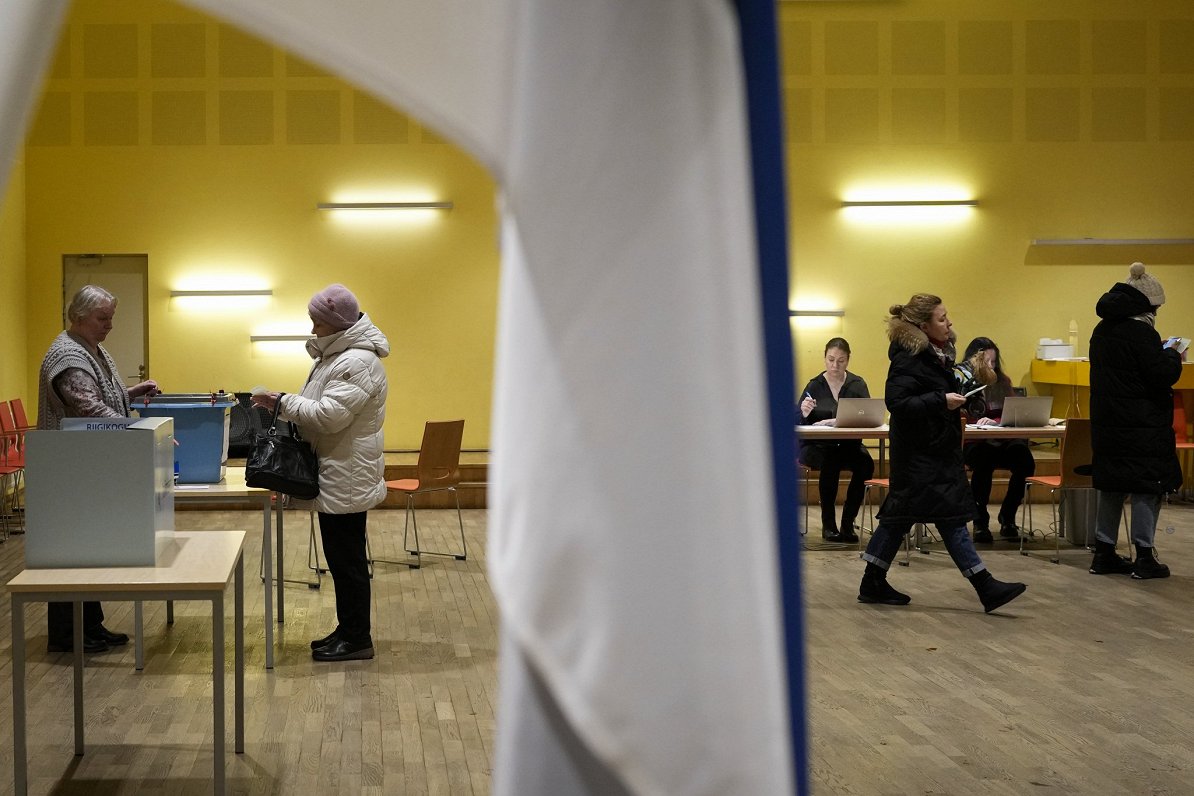In Estonia, a high turnout was registered in the parliamentary elections conducted this weekend with more than 63% of eligible citizens casting a vote. For comparison, in the 14th Saeima elections in Latvia last fall, voter turnout increased to 59.4% .
Estonia is one of the few countries where elections are also organized electronically, and in the weekend elections more than half of voters opted for an e-vote.
Such an option is undeniably convenient, and its implementation has been talked about in Latvia for at least 10 years. However, its reliability is questioned by the Latvian Open Technologies Association (LATA), and there also appears to be lukewarm support for adoption of e-voting in the corridors of power.
Pēteris Jurčenko, chairman of the board of LATA, emphasized that "it is not possible to provide both secure and secret voting at the same time. Technologically, nothing has changed".
"Yes, such elections are ensured in Estonia, but scientists do not consider them safe. Anonymity is a big problem in the e-world. You need to be able to check yourself how you voted, while no one else can find out how you voted. That's where the dilemma begins, and the problem is how to guarantee that no one will find out how you voted electronically," said Jurčenko.
According to him, it is understandable to modernize and facilitate elections with electronic tools, for example, to create an online register of voters at the disposal of the Central Election Commission, which allows voting using an identity card – a move which has already happened in recent Latvian elections.
Such an opportunity is also planned to be provided in next spring's European Parliament elections, however, the Saeima State Administration and Local Government Commission has not yet received the relevant amendments to the law, admitted the head of the commission Daiga Mieriņa from the oppsition Union of Greens and Farmers (ZZS).
In her opinion, Latvia should follow the example of Estonia and move towards safe electronic voting, which would be a good example of the "digital transformation" process which is being talked up by the government.
However, commission member Ingmārs Līdaka from the United List, which is actually in government, is much more skeptical.
"This electronic voting does not give me confidence in the confidentiality of the vote," Līdaka said.
"The pressure of both the employer and, of course, family members can be realized there. Secret voting may not be ensured in this way. Also in countries that are following the path of digitalization, Scandinavian countries or Germany, apparently there are quite a lot of these arguments, which make you [tend to] stick to familiar methods. Estonia is one of the few countries that has such an electronic vote," Līdaka said.
And despite Estonia's long history of e-voting, it remains a bone of contention with the party that placed second in the weekend elections, the right-wing EKRE, signalling that it might challenge the use of e-voting in the courts.
Meanwhile, Latvia's Central Election Commission and its new head already face some major challenges of their own, as previously reported by LSM.





























